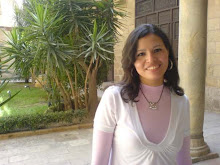Who is prophet Mohamed?
Prophet Mohamed was born in Saudi Arabia in Mecca in 570 A.D, and is an Arab descendant of Abraham and his son Ismail.
Prophet Mohamed carried the responsibility of calling for Islam as a religion which calls on people to worship God “Allah” who created our world, mankind and the universe. The aim of this article is to give some insight into the life of prophet Mohamed, especially his childhood, his youth and his marriage.
Prophet Mohamed carried the responsibility of calling for Islam as a religion which calls on people to worship God “Allah” who created our world, mankind and the universe. The aim of this article is to give some insight into the life of prophet Mohamed, especially his childhood, his youth and his marriage.
The childhood of prophet Mohamed
An orphan … a sheepherder and an independent child
An orphan … a sheepherder and an independent child
Looking to the Arab Peninsula before the emergence of Islam in which the superiority was for men, wealthy people and those who were physically strong, it seems to me that Islam came essentially to correct these values which long dominated the Arab society.
This shows clearly in the life of prophet Mohamed. Although his father (Abdullah bin Abd Al-Muttalib) was one of the wealthy people in Quraish, he actually did not take privilege of his parent, as his father died before his birth, and his mother (Aminah bin Abd Al-Manaf) who also came from a privileged tribe died when he was six years old. Following the death of his parents, Mohamed was cared for by his grandfather who also soon died two years after the death of Mohamed’s mother.
Mohamed then moved to live with his uncle (Abu Talib) who took care of him and later supported him in his call for the new religion in the Arab society. Being an orphan with no parents to pamper him like ordinary children, Mohamed had to be independent and even started to work in sheepherding though he was still a child at a young age.
Mohamed as a young man
Being an individualist
I think that individuality can be the keyword, which describes Mohamed as a young man. Even long before he started to call for the new religion, Mohamed was thought by his society to be different from the young people of his generation. He led a plain life which had no place for vanity and pride.
This solemnity and serious attitude towards life made him take an active part in easing the clashes which usually erupted among the tribes of his homeland which either competed over glory or wealth. Further, unlike the usual religious practice adopted by his society, Mohamed never worshipped statues. Rather, being a descendant of Abraham and his son Ismail, he always went to one of the caves in Mecca, to contemplate about the almighty creator, who must have created us and all the other elements of the universe.
Mohamed’s marriage to khadija
Setting new roles for men and women
But Mohamed’s work in the caravan of a wealthy widow named Khadijah was an important stage in his life. Known to be a trustworthy and a truthful person, he managed to conduct successful business for Khadijah. He even undertook a journey to Syria after which he returned with larger profit than usual. Khadijah seemed to be impressed by his honesty and attractive personality that she asked him to marry her.
But again, as I see it, the way Mohamed married Khadijah seems to set new values for the Arab society and even flouts the established roles of men and women that we find in most societies nowadays.
So, it was Khadijah who took the initiative and asked Mohamed to marry her. What is more is that Khadijah herself was 15 years elder than Mohamed, a fact which surely flouts the norm established in many societies that a wife should be preferably younger than her husband or at least of the same age.
A father of four daughters and two boys
Out of his marriage to khadija, Mohamed had six children (four girls and two boys). The two boys soon died after their birth while the girls lived at a later age.
And again what attracted my attention is that Mohamed had four girls from his marriage to khadija at the time when in the Arab peninsula having baby girls was a sign of disgrace; girls were buried alive in the desert until they die.So, Mohamed, being a father of four girls, sets an example of a father who not only let “his daughters to live” but was also proud of them and supported them. In the coming article, we will see the difficulties that prophet Mohamed had to face in his call for Islam.
And again what attracted my attention is that Mohamed had four girls from his marriage to khadija at the time when in the Arab peninsula having baby girls was a sign of disgrace; girls were buried alive in the desert until they die.So, Mohamed, being a father of four girls, sets an example of a father who not only let “his daughters to live” but was also proud of them and supported them. In the coming article, we will see the difficulties that prophet Mohamed had to face in his call for Islam.
…To be continued…

